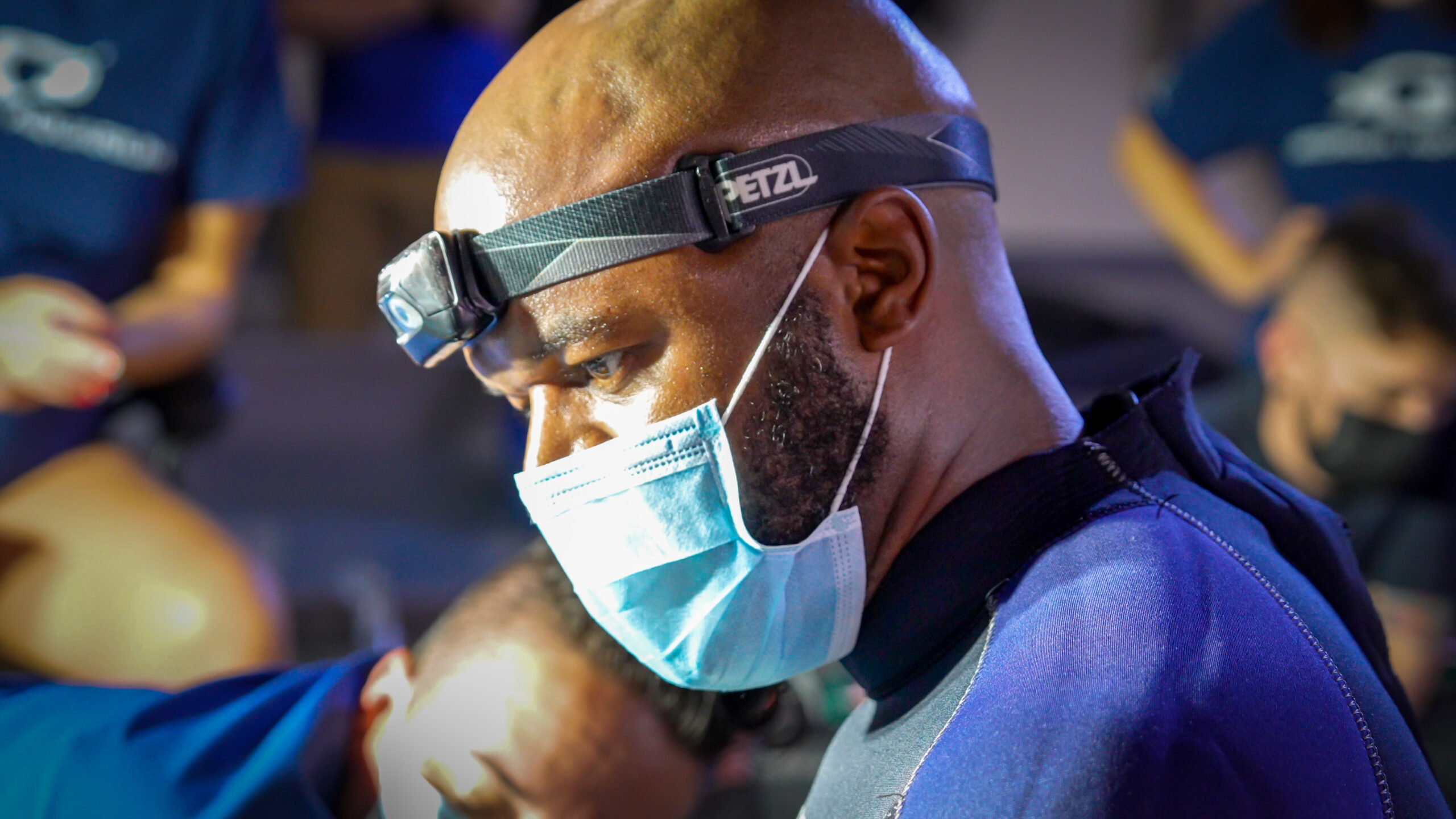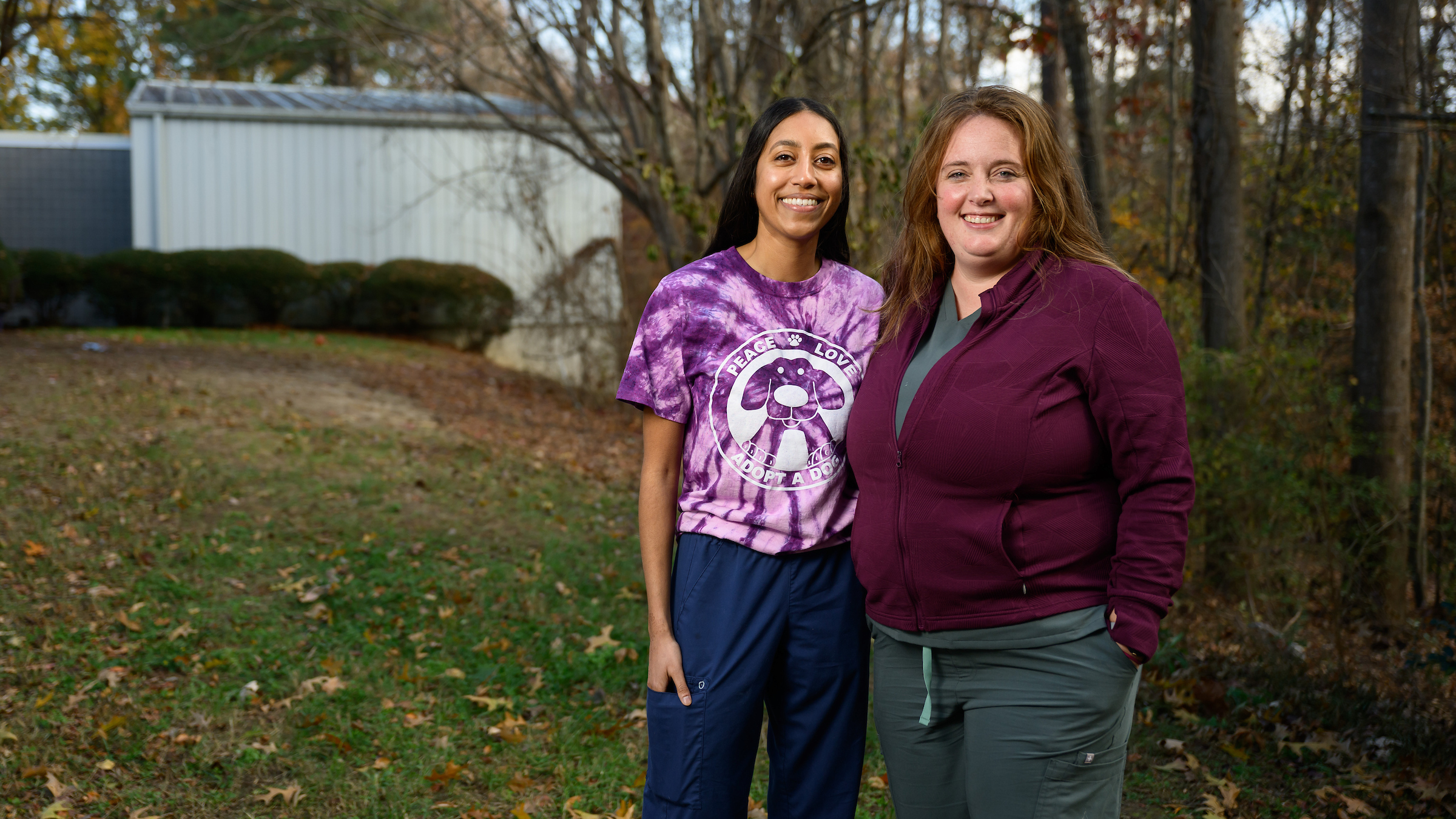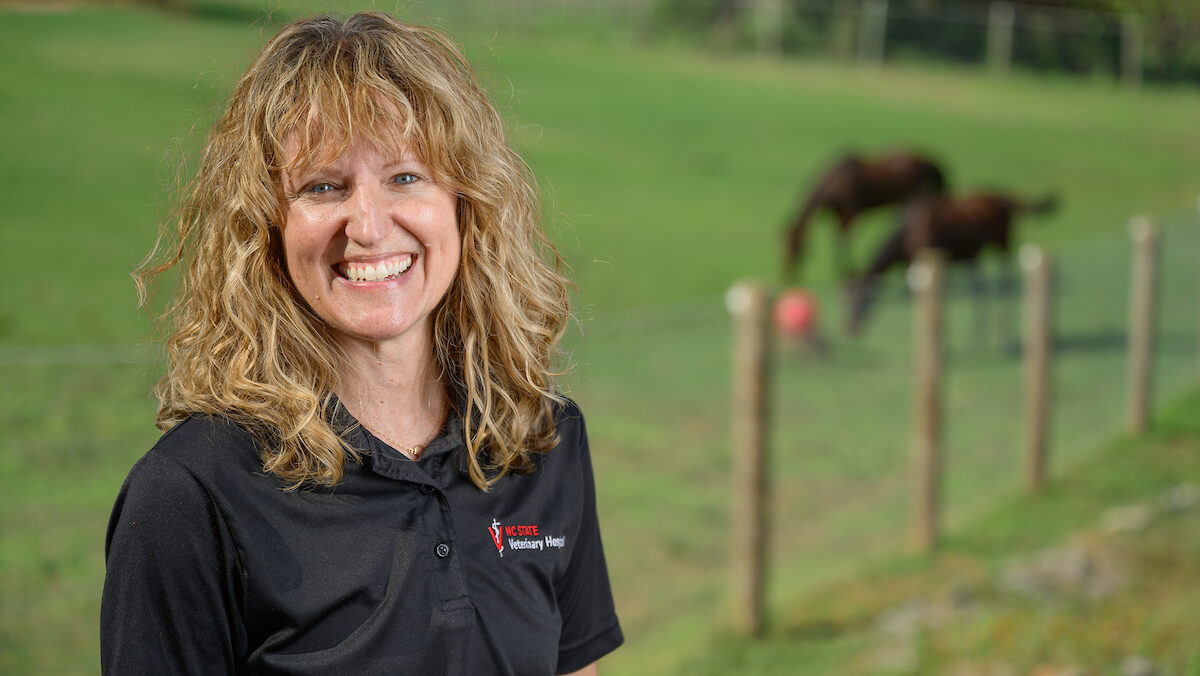Veterinary Medicine, Done ‘Taylor’s Way’
The Greensboro Science Center’s new head veterinarian Dr. Taylor Gregory, an NC State alumna, has taken an unconventional route through her early career but one that's proudly her own.
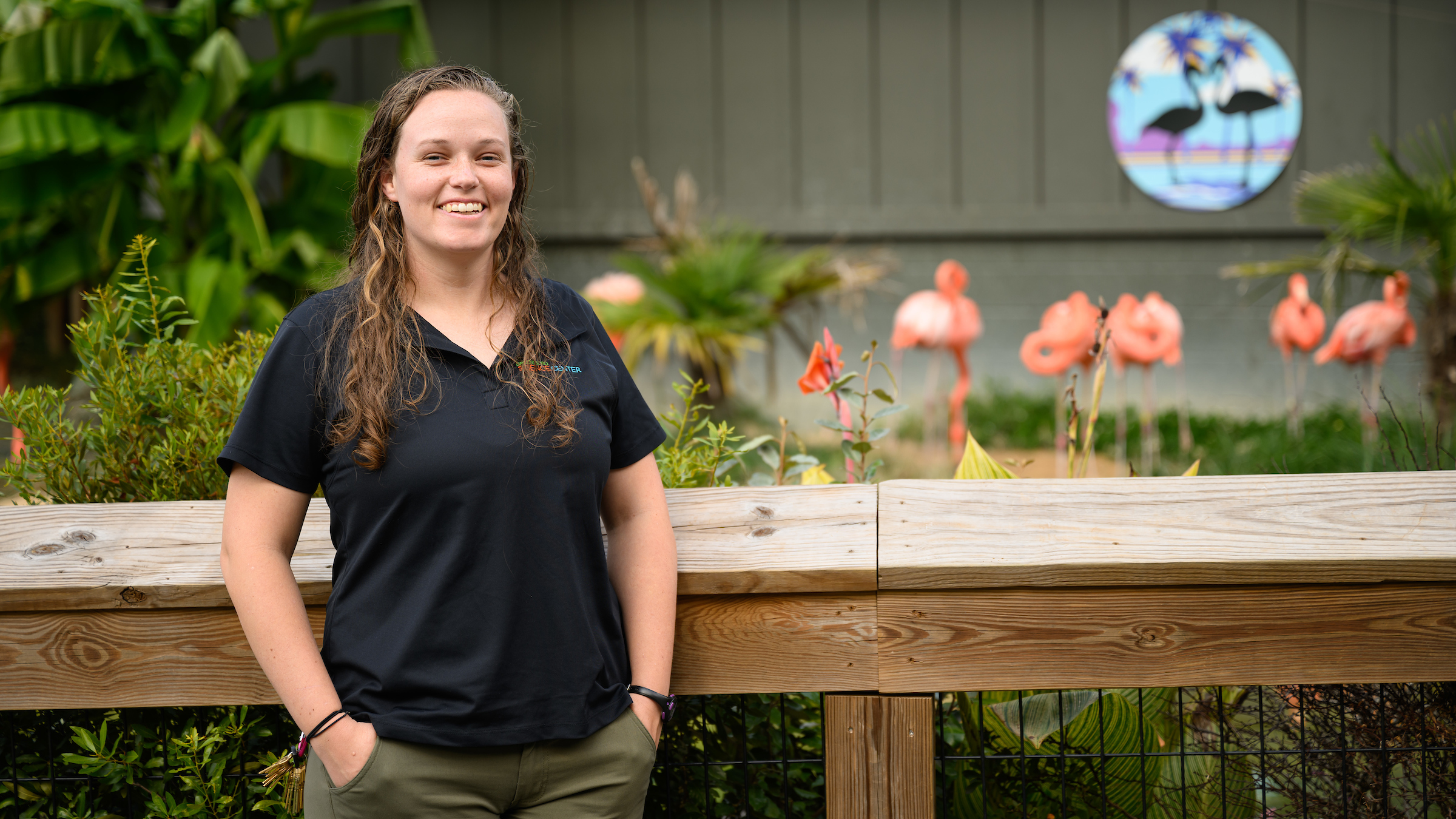
Dr. Taylor Gregory is the first to admit she has done everything “Taylor’s way,” by forging her own path and stubbornly sticking to it, yet she is usually the last to realize when she has changed course.
As the Greensboro Science Center’s vice president of animal health, Gregory is the sole veterinarian in charge of the complex’s zoo and aquarium menagerie. But despite her clear affinity for wildlife, the NC State College of Veterinary Medicine Class of 2021 alumna almost didn’t pursue exotic medicine.
She entered veterinary school with a declared mixed animal focus and the goal of eventually starting a mobile practice for dogs, cats and horses. The call to work with wildlife grew stronger in student clubs, and she soon felt most at home in the red wolf pens of NC State’s Carnivore Conservation Crew and the tanks of its Turtle Rescue Team.
It wasn’t until the summer after her second year, while she was driving back from her second trip to the Chattanooga Zoo in as many weeks for the chance to examine a snow leopard, that she allowed herself a revelation. She had already spent her winter break on a multi-state, multi-zoo “Snowleopardpalooza” trip to see the big cats.
“I looked at the classmate I had gone with, and I’m like, ‘This summer, I have spent five days on a boat with the South Carolina Department of Natural Resources, pulling up sea turtles for research and releasing them, and we have driven 30 hours to ‘play’ with a snow leopard; why the heck am I telling everybody that I want to do small animal medicine?’” Gregory recalls, laughing.
“And she’s like, ‘Taylor, everyone else has known this since Day One,’” she continues. “‘Why are we having this conversation? Obviously, you’re not doing small animal medicine. That’s not the path for you.’ I think it just took me realizing that I need to stop being stubborn.”
As she has embraced her calling, 28-year-old Gregory has continued blazing her own route through zoological medicine, a trail marked by the COVID-19 pandemic and other setbacks but defined by her drive and determination.
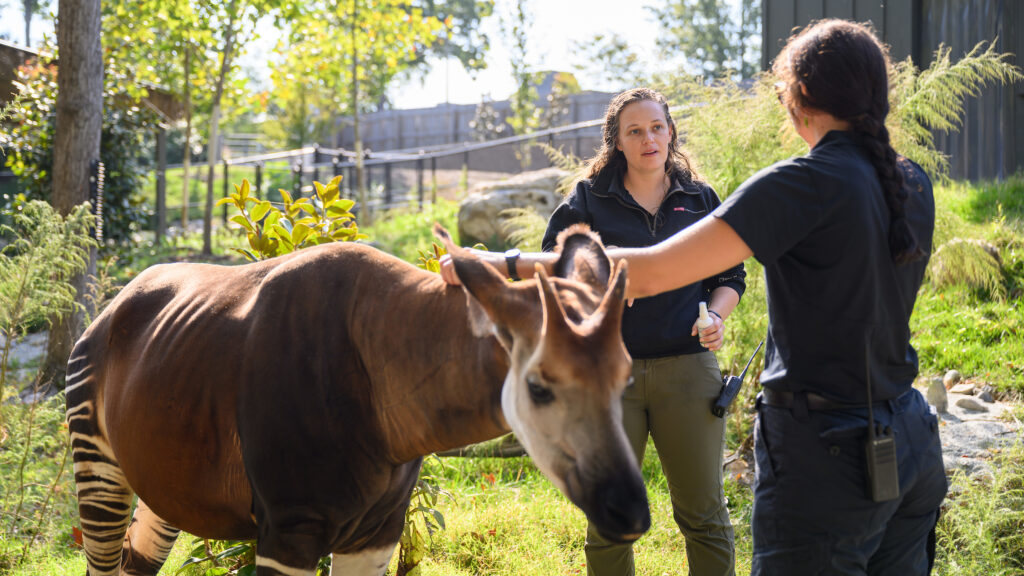
Finding a Balance
Gregory says she made two decisions at age 2 that she has followed for life: She was going to be a veterinarian, and she did not like eating jelly.
She split her childhood between the Charlotte area and California. Gregory settled in Raleigh for college, studying biological sciences with a minor in outdoor leadership at NC State.
Her busy pre-vet prep included working at a small animal hospital, shadowing equine veterinarians and spending a summer at a wildlife hospital. In college, Gregory occasionally put veterinary medicine on the back burner to explore outdoorsy interests like working on a high ropes course, assistant teaching a rock-climbing class and studying abroad in Australia.
“I don’t know that I would recommend people do the route to vet school that I did, because it was very risky, but it worked for me,” Gregory says. “I think it set me up better, because I got a lot more life experience than I would have gotten as a vet assistant or tech. That’s actually helped me in zoo med, because sometimes you have to think about problems from outside a veterinarian’s perspective.”
Gregory earned admission to multiple vet schools but chose NC State based on a gut feeling.
As a student, she served as president of the Carnivore Conservation Crew and the Wildlife, Avian, Aquatic and Zoological Medicine club and as a lieutenant on the Turtle Rescue Team. She also conducted research and authored a few published papers.
Yet one of her proudest accomplishments was starting the “What the DVM Am I Talking About?” lunch series, for which she enlisted professors to ad-lib presentations on a mystery topic for fun.
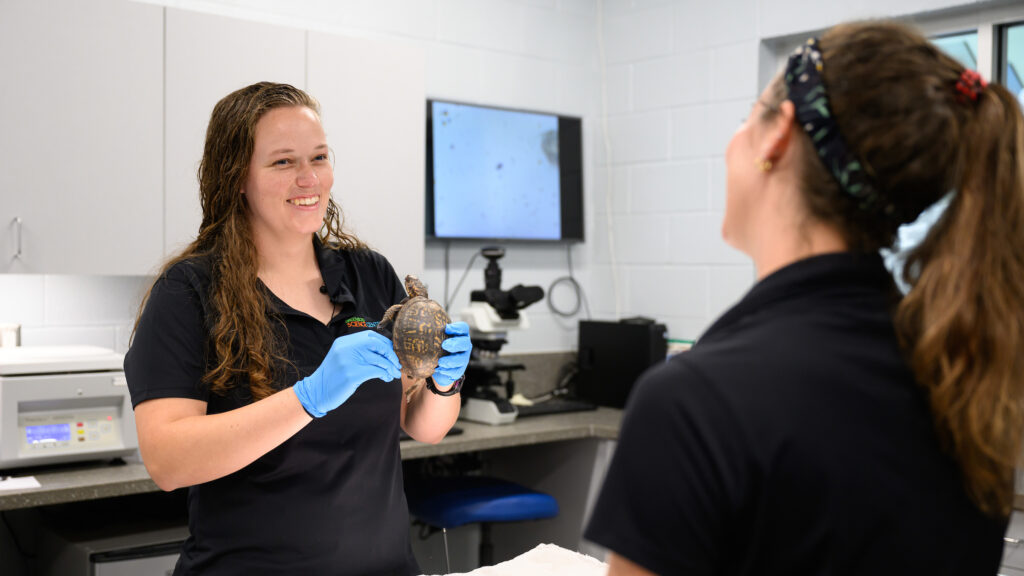
The COVID-19 pandemic emerged just before her fourth-year clinical rotations. Students’ time within the Veterinary Hospital was condensed, and quarantining abruptly upended their schedules.
Gregory’s externship at the Omaha Zoo was canceled, too. She found another at the Greensboro Science Center, but even that was shortened by COVID.
“In some ways, our class’ transition into the field was harder, but it’s going to make less and less of a difference as we move forward,” she says. “We learned how to be more resilient, which I think will benefit us in the long term.”
Another hurdle arose when Gregory did not match into a zoo and small animal rotating internship after graduation. She scrambled and ended up in Houston before matching into a zoological medicine and surgical internship at the Fort Worth Zoo.
After interning there for a year, she entered the match for a residency but again did not place. She took this challenge in stride.
“There’s a stigma about people who don’t match not being successful, and I think that’s absolute crap,” she says. “I kind of knew I wasn’t gonna match into a residency, and I was very OK with that.”
She planned to take a break before job searching, but then a perfect opportunity beckoned: The Greensboro Science Center was looking for a veterinarian.
Bringing the Pack to the Piedmont
With the encouragement of Dr. Tara Harrison, an associate professor of exotic and zoological medicine and one of Gregory’s closest NC State mentors, Gregory applied for and was offered the position at the center.
She began working there in August, thrilled to return home to North Carolina and have her NC State support system close by.
“The GSC is a really good community of really good people who all really care about these animals,” Gregory says.
Glenn Dobrogosz, Greensboro Science Center CEO, says he’s proud to have another NC State-trained veterinarian on staff. Dr. Sam Young, Gregory’s predecessor, is also an alumnus.
“We could not be more excited to have Dr. Gregory on our team and to have such an amazing relationship with the university,” Dobrogosz says. “I grew up visiting the now-NC State Veterinary School location when it was just a working research farm. Late NC State microbiology professor Dr. Walter Dobrogosz — my father — and I would visit regularly as he would take samples for his ongoing research. Keeping our relationship with NC State alive is a wonderful thing.”
Gregory has hit the ground running learning about the center’s many residents, including pygmy hippos, okapi, red pandas, tigers, lemurs, howler monkeys, otters, turtles, flamingos, fish and more.
She says her experiences at NC State and the Fort Worth Zoo prepared her to handle each species’ unique needs. If a tough case requires support, she knows she can count on Harrison and the NC State community.
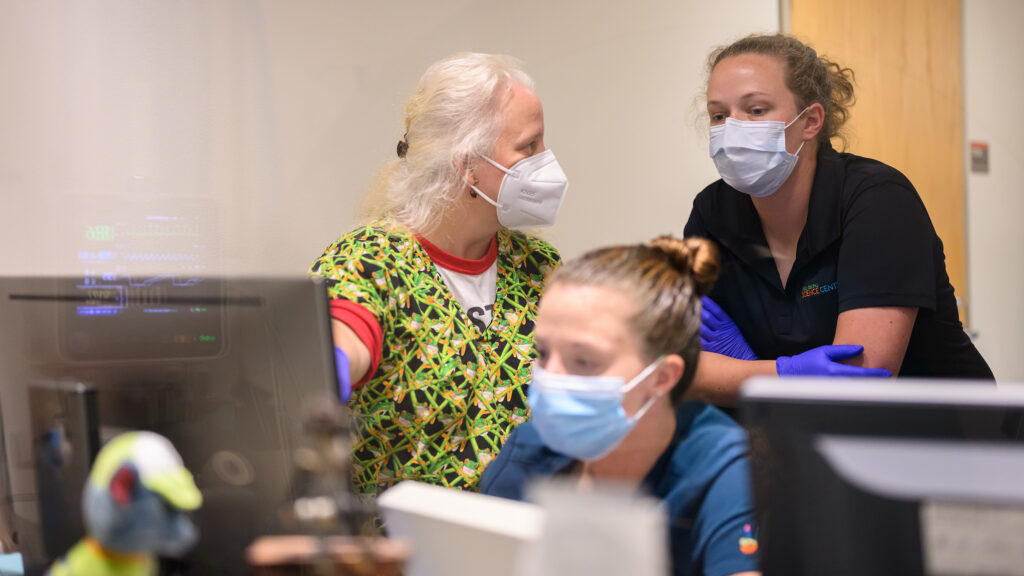
“I clearly remember when Taylor told me she wanted to become a zoo veterinarian as we were walking to help care for the wolves,” says Harrison, who often works with the Greensboro Science Center. “It has been so exciting for me to have had Taylor as a student and now as a colleague who is just down the road to collaborate with and continue to teach the future zoo veterinarians of our profession. We are excited to have her back in the Pack and to continue to watch her do great things.”
Gregory says veterinary school gave her a solid foundation, but she has often learned more from following her interests and doing things firsthand. Nothing in zoo medicine prepares you to deal with a tiger lunging at you except having that experience, she says.
“Find your own path,” Gregory says. “We all have to find our own way into being a veterinarian. Every time I tried to match what someone else did, it didn’t work. So I just decided to do my own thing.”
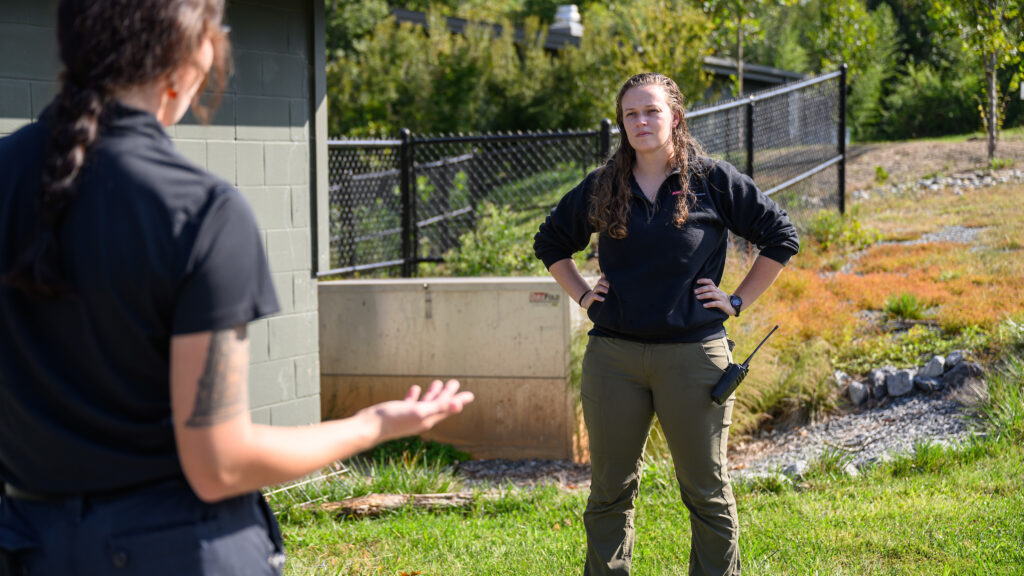
- Categories:
